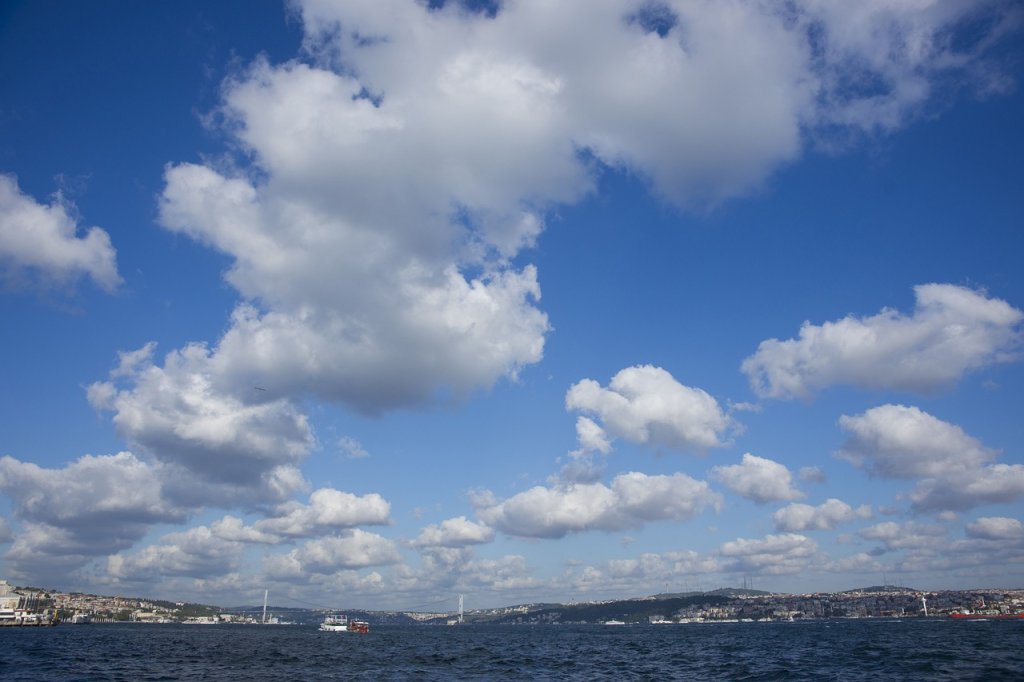
Generally associated with conflict and instability, the Middle East region had been experiencing the most promising time of its history, until October 7, 2023. As the United States’ allies in the Middle East perceived Washington as a less reliable ally, the prominent countries of the region, especially Saudi Arabia, changed their discourse and focused on regionalization, calling for cooperation instead of competition to create a stable, prosperous region. Consequently, its mediation efforts started to attract attention. Saudi Arabia’s ground-breaking re-establishment of diplomatic relations with its arch-rival Iran was an essential pillar in its goal of solving the region’s problems internally. The other leg of this important change was the normalization of the relations with Israel. The normalization between Israel and the Abraham Accords signatory countries continued with Saudi Arabia’s consent, the region’s heavyweight, in the background. The efforts of the Middle Eastern countries to strengthen their regional cooperation were remarkable. 2022 witnessed historical summits such as Sharm El Sheikh, Aqaba, and Sde Boker, one after the other.
However, the Israeli-Saudi and, subsequently, Israeli-Arab normalization processes, which were expected to conclude positively, came to an end for the foreseeable future with Hamas’s breach of the Gazan border and attacks on Israeli cities on October 7 and Israel’s pursuit of war after it recovered from the initial shock. Iran’s involvement in the Israel-Hamas war can be easily felt as Tehran was openly dissatisfied with above-mentioned normalization steps. Essentially, by undermining the cooperation and regionalization efforts in the Middle East, Iran has seized a golden opportunity to end the Abraham Accords and similar rapprochements that would ensure Israel’s integration into the region,
This conflict has also negatively impacted Turkey’s ongoing normalization efforts with Gaza’s two neighbors, Egypt and Israel, with which it had been working hard to improve relations. The renewed normalization process between Turkey and Israel continued its positive course when President Recep Tayyip Erdoğan and Israeli Prime Minister Benjamin Netanyahu met at the Turkish House in New York in September 2023. The first ever face-to-face meeting between the two leaders was also a crucial indication that mutual visits would follow. The Israeli press claimed that Erdoğan would visit Israel and would pray at al-Aqsa Mosque on the 100th anniversary of the Turkish Republic. Still, the main obstacle to the improvement of relations between the two countries was that Turkey was hosting Hamas leaders. By the end of October 2023, there was no trace of this positive atmosphere. Anti-Israeli and antisemitic rhetoric in Turkey hardened, and Israel summoned all its diplomats to the capital for security reasons.
Traditional Turkish Foreign Policy
Turkey’s traditional foreign policy towards the Middle East, except for the Adnan Menderes era during the 1950s, was to avoid involvement in regional conflicts. This decision was the result of Turkey’s position as a member of the Western world and of a balanced and impartial foreign policy approach aimed at preserving its relations with its Middle Eastern neighbors located in an unstable region. This foreign policy stance changed during the Turgut Özal (1983-1993) era, especially with the Gulf War. Since then, an active policy towards the Middle East has followed, emphasizing fraternal ties with Islamic countries in the discourse. During Ismail Cem’s tenure as the Minister of Foreign Affairs (1997-2002), Turkey’s role as a mediator between Israel and the Palestinians was widely discussed. Cem, who visited the region many times, described Turkey’s role in this conflict not as a “mediator” but as a “facilitator” who prioritized resolving the differences and mistrust between the two parties. However, many attempts for this role were fruitless. Nevertheless, Turkey sought to establish better relations with its neighbors, such as Greece and Syria, during this time. Still, this approach did not include the role of a mediator in disputes between third parties.
The AKP Era and Mediation Efforts
With the Justice and Development Party (AKP) coming into power in 2002, activism towards the Middle East began. Until 2015, AKP’s foreign policy was formulated by Ahmet Davutoğlu, first the party’s foreign policy advisor and later the Minister of Foreign Affairs, and finally the Prime Minister. During this period, in parallel with Turkey’s efforts to be accepted as a regional power and to increase its international status, Turkey adopted a policy of conflict resolution and peacebuilding for several problems in the Middle East, the Balkans, the Caucasus, and Southeast Asia. Mediation efforts were identified as a crucial foreign policy approach to reach this goal.
Turkey’s active foreign policy based extensively on soft power tools has contributed to the image of Turkey and especially Erdoğan’s, primarily in the Middle East, and it has provided the possibility of intervening in many regional issues. By 2010, some analysts, following Davutoğlu’s rhetoric, began to characterize Turkey as a “playmaker, not a mediator.” Ankara played an important role in instances such as diplomatic efforts with Brazil towards the Iran nuclear deal (2010), dialogue initiatives on Russia-Georgia (2008), Pakistan-Afghanistan (2010), Iraq-Syria (2009), Bosnia Herzegovina-Serbia (2011), Israel-Palestine, Al Fatah-Hamas (2008), as well as Israel-Syria (2008) indirect talks.
But despite all the efforts, Turkey was unable to achieve the intended outcomes in some of these issues, as activism in foreign policy does not always equate to the capacity and sphere of influence needed to succeed. Furthermore, it was difficult to get beyond the psychological barrier of outside interference, particularly regarding inter-Arab disputes. On the other hand, Turkey’s election as a temporary member of the UN Security Council in the 2009–2010 term was a major sign that the shift in its foreign policy was welcomed.
Factors Influencing Turkey’s Mediation Efforts
Since the 1990s, systematic, regional, and domestic political factors have supported Turkey’s effort as a facilitator. The end of the Cold War at the systematic level, the ongoing state of instability at the regional level due to conflicts such as the 1991 Gulf War and the 2006 Lebanon War, and the anxiety created by the visible rise of Iran after the 2003 Iraq War caused Turkey to pay closer attention to regional problems that could spill over into its borders. It allowed Ankara to exert its influence as a middle-power state in the region. Turkey also aimed to protect its own security through mediation efforts.
Another factor boosting Ankara’s self-confidence and motivating it to work toward resolving the difficulties in the region was its admission as an EU candidate at the Helsinki Summit in 1999. During this time, the metaphor of serving as a bridge between the West and the East! became even more significant. The improvement and development in Turkey’s economic status also paved the way for all these initiatives.
The disputing parties viewed Ankara as an impartial, fair, honest, and reliable actor, which was one of the fundamental reasons Turkey could function as a facilitator or mediator. But some of AKP’s remarks about the Ottoman legacy and “our historical responsibility” brought up old grievances in the countries of the region. Furthermore, due to the Turkish people’s sympathy towards the Palestinians, Israel has always been at the forefront of the threat list. This continues to be the main factor determining the policies of the ruling and the opposition parties on this issue. Especially for the conservatives who make up the AKP base, the Palestinian issue maintains its importance and puts pressure on the government. As a matter of fact, the Israeli operation in Gaza at the end of 2008 marked the end of the indirect negotiations between Syria and Israel, which were conducted with Ankara’s support. The Turkish-Israeli relationship took a negative turn after this incident.
The Change that Came with the Arab Spring
With the Arab Spring, Turkey hardened its foreign policy discourse. Due to its publicly taking sides in several crises, it has since lost its reputation as a neutral and trustworthy actor, particularly in the Middle East. Ideologically based foreign policy decisions resulted in Turkey’s isolation in the international arena. As a result, Ankara could not find any country to support its arguments, even on issues where it was right. Turkey’s potential to act as a facilitator or mediator in disputes diminished when the attributes that had made it possible to do so disappeared.
Turkey still wanted to reinforce its mediator status and strengthen its image as a neutral actor with the ‘Mediation for Peace’ initiative launched at the UN in 2010, the Istanbul Mediation Conference (2012-2022), and the Antalya Diplomacy Forum organized since 2021. Turkey was able to regain its reputation as a mediator in the Astana/Sochi process with Russia and China, as well as its initiatives in the Russia-Ukraine war.
Although at first it could not keep up with the significant changes taking place in the Middle East since 2020, especially with the Abraham Accords, Turkey has made overtures towards many countries which it had unfavorable relations with, such as Israel, the United Arab Emirates, Saudi Arabia, and Egypt and has started to receive a positive response. Among these countries, the normalization between Turkey and Israel was the fastest developing relationship up until the October 7, 2023 attacks.
Back to the Present…
The de-escalation of the tension in the region is an integral part of Ankara’s policy towards the Middle East. Turkey’s current pursuit of a balanced foreign policy is remarkably reflected in its calls to act as a mediator in the Israel-Hamas war. Given the significance placed on the ongoing efforts to improve ties with Middle Eastern nations, this position aligns with Ankara’s foreign policy objectives. Indeed, in the early days of the conflict, President Erdoğan urged restraint on both sides, stated that civilians should not be targeted, and repeated his calls for a ceasefire and mediation. The Minister of Foreign Affairs, Hakan Fidan, stated that a guarantor mechanism should be activated. Reports that Turkey was negotiating the release of civilians taken hostage by Hamas in Gaza, surfaced in the press during the early stages of the conflict.
However, in recent days, the intensity of outrage against Israel has transcended diplomatic boundaries. More significantly, Ankara’s ability to act as a facilitator in this conflict has been curtailed by its declaration that Turkey does not recognize Hamas as a terrorist organization, indicating a departure from the fundamental requirement of neutrality. On the other hand, if Turkey had continued its calls for common sense, it could have joined several other countries that are still trying to mediate.
Translation: Beyza Eda Aydın, Koç Üniversitesi

Karel Valansi, Journalist/Author – T24, Şalom Newspaper
Karel Valansi is a columnist who makes analyzes on the Middle East and foreign policy in T24 and Şalom Newspaper, and is a lecturer in the Department of International Relations at Istanbul Kultur University. Continuing her doctorate studies at Kadir Has University, Department of International Relations, Valansi’s first book on Turkey-Israel relations, “The Crescent Moon and The Magen David, Turkish-Israeli Relations Through the Lens of the Turkish Public” was published by Hamilton Books in 2018. You can reach Karal Valansi who is a member of the Women in Foreign Policy Initiative through her twitter account @karelvalansi and her articles on karelvalansi.com.
To cite this work: Karel Valansi , “The Importance of Turkey’s Mediation Role”, Panorama, Online, 5 April 2024, https://www.uikpanorama.com/blog/2024/04/05/mediation
Copyright@UIKPanorama. All on-line and print rights reserved. Opinions expressed in works published by the Panorama belongs to the authors alone unless otherwise stated, and do not imply endorsement by the IRCT, Global Academy, or the Editors/Editorial Board of Panorama.

